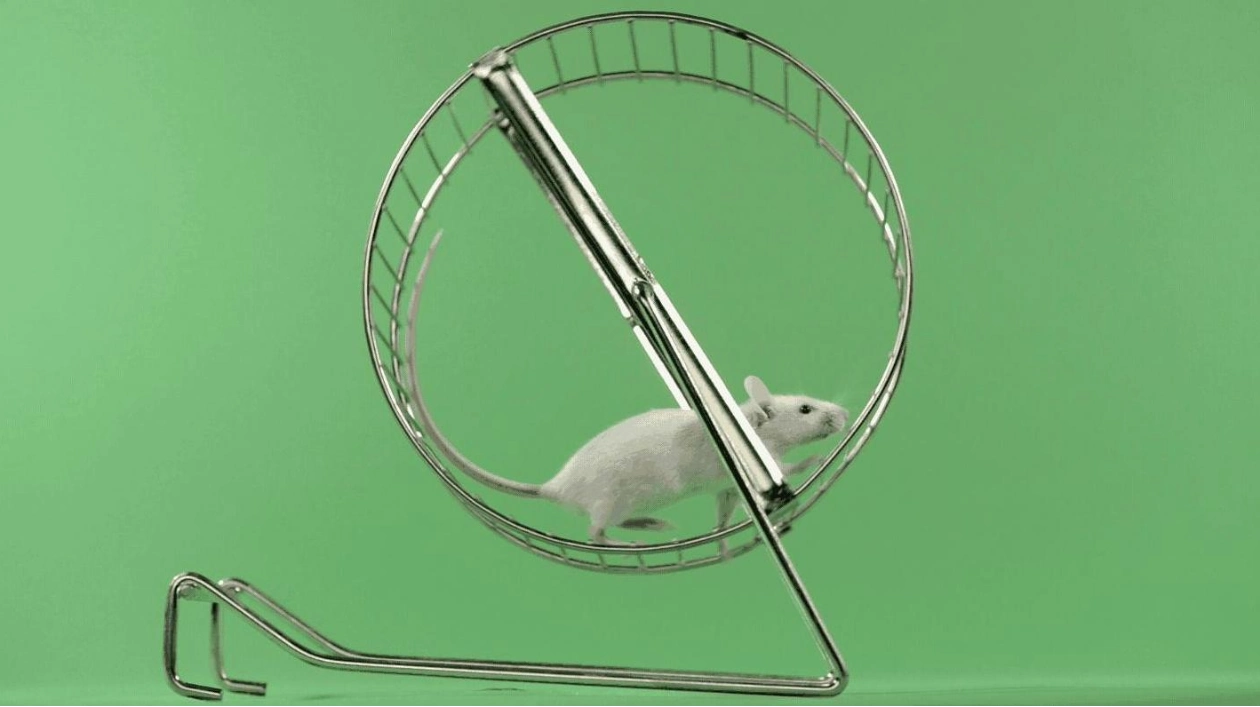CHICAGO — Mice have a natural penchant for running, but this enthusiasm wanes when they are administered semaglutide, the diabetes and weight-loss medication marketed as Ozempic and Wegovy. A recent study reveals that mice treated with this drug exhibit reduced activity on a running wheel. The findings, presented on October 7 at the Society for Neuroscience's annual meeting, are still in the preliminary stage. However, they prompt inquiries into whether these increasingly prevalent drugs, which imitate the GLP-1 hormone, could influence people's motivation to exercise.
Neuroscientist Karolina Skibicka of Penn State University and the University of Gothenburg in Sweden notes that these results align with existing knowledge about how these drugs alter brain function. "This discovery is significant," she asserts. "Despite dedicating much of my career to studying these drugs, there is still much we don't understand." Mice typically run extensive distances on a wheel, often clocking up to 10 kilometers daily, according to neuroscientist Ralph DiLeone of Yale University. "Their running habits are quite extraordinary," he remarks.
However, DiLeone and his team observed that mice given semaglutide for a week ran significantly less than their typical distances, with both male and female mice reducing their daily mileage by approximately 38 percent. When the drug was discontinued, the mice's running distances returned to normal. While the mice did lose weight while on semaglutide, those on restricted diets that induced similar weight loss without the drug did not alter their running behavior, suggesting that weight loss alone is not the cause of the reduced activity.
Further experiments indicated that the reduced running was due to a lack of motivation. Mice were trained to unlock their running wheel by poking their noses into a slot. Typically, they would repeatedly poke to unlock the wheel, but those on semaglutide poked less, indicating reduced eagerness. It remains unclear whether these altered running habits in mice correlate with human exercise patterns. If these drugs do diminish exercise motivation in humans, Skibicka suggests that healthcare providers may need to adjust their advice to patients, emphasizing the importance of maintaining exercise despite potential disinclination.
While GLP-1 drugs aid in weight loss, a portion of that loss includes muscle mass, which is crucial for health. "Reduced exercise combined with muscle loss is a concern," Skibicka warns. DiLeone posits that the mice's running might be compulsive, and semaglutide could be curbing this urge, aligning with other findings that suggest the drug may help in overcoming addictions by affecting the brain's reward systems.
Exercise physiologist Glenn Gaesser of Arizona State University in Phoenix cautions that it's uncertain whether these findings apply to humans, as there is no evidence indicating reduced human exercise on these drugs. However, common side effects like fatigue, low energy, and nausea could potentially diminish motivation. Gaesser emphasizes that physical activity and fitness have a more significant impact on longevity and health than weight loss alone. He worries that viewing exercise solely as a weight-loss tool might lead people to forgo physical activity after taking GLP-1 drugs, which would be a significant error.






